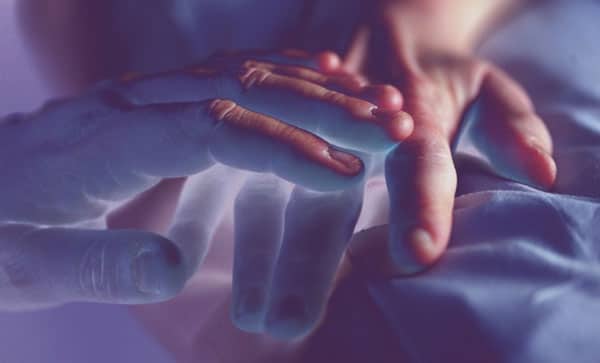Can Reiki help with sleep disorders?
Complementary and alternative (CAM) health therapies are becoming more popular worldwide. In the United States and the UK, Reiki is used in many hospitals as an adjunct therapy to conventional medicine.
Before we explore how Reiki can help with sleep disorders. Let’s take a quick look at what insomnia is. Insomnia is described as a chronic inability to fall asleep or remain asleep for an adequate length of time. There are three types of insomnia:
Conditional insomnia is psychophysiological in nature and arises from an episode of acute situational insomnia triggered by pain, illness, medication, stress, travel or bereavement. In this instance, you would associate your bed with not sleeping and become hyper-aroused at night when you should normally feel relaxed and sleepy.
Insomnia associated with clinical disorders is common in mood and anxiety disorders. Other conditions associated with this type of insomnia include asthma, reflux, heart disease, chronic obstructive pulmonary disease, rheumatologic and other pain related disorders, hyperthyroidism, renal disease and neurodegenerative disorders.
Circadian rhythm sleep disorders arise when there is a disruption in your sleep cycle. In other words, you feel sleepy during the day rather than at night.
The effect of sleep loss can have a significant effect on the central nervous system causing irritation, loss of concentration, aggravation, loss of memory and many other changes within the body.
What is Reiki and how can it help with sleep disorders?
Reiki is a vibrational or subtle energy therapy that uses light touch to balance the biofield and strengthen the body’s own ability to heal itself. A biofield is made up of interacting fields of energy and information that surround all living systems. It is believed that energy therapies can be a useful aid in improving health and wellbeing.
A study in 2004 looked at whether Reiki could reduce insomnia and improve sleep patterns. It found that Reiki was a beneficial therapy for sleep problems since it decreased episodes of insomnia and improved sleep patterns. Reiki also had a positive effect on the parasympathetic nervous system, which is associated with relaxation.

Another study, not specific to sleep found that Reiki improved sleep quality and a number of other factors in patients, suffering from pain and anxiety.
Data published in Biological Research for Nursing looked at whether Reiki could help with relaxation. Subjects heart rate variability, body temperature and cortisol levels were measured. Although no change in cortisol levels, there was a change in their heart rate variability and body temperature. This demonstrated a statistically significant relaxation response, which is a key component needed for a good night’s sleep.
More recent research conducted in 2016 found that Reiki was helpful in decreasing anxiety and stress. Although not specific to sleep, when the sympathetic nervous system (fright and flight) is switched off, anxiety and stress is decreased. When more relaxed, sleep quality is likely to improve.
Reiki is a wonderfully relaxing experience, which I believe can have deep healing effects for the recipient. Studies show that the benefits of Reiki include improved sleeping patterns, feeling less anxious and being more relaxed.
If you like to have more information about Reiki or would like to give it a try, please feel free to contact me directly.






